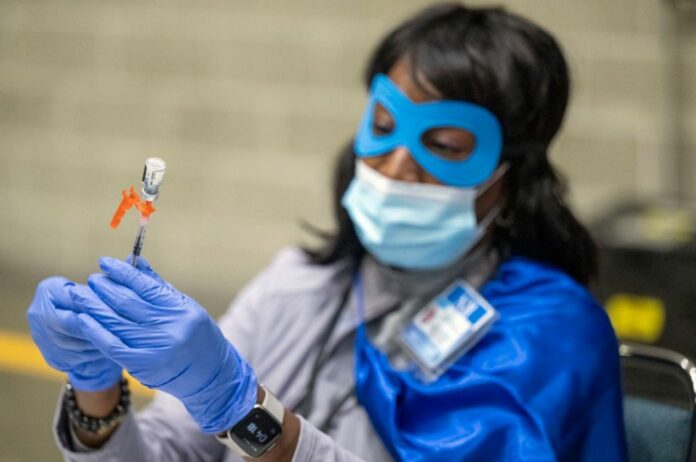A new study published today reveals an easy way to improve vaccine effectiveness before and after the COVID shot.
It is a well-known fact that people’s response to vaccination varies based on various factors such as age, gender, pre-existing medical conditions, and other uncontrollable factors. However, having a behavior that can be easily changed and modified around the time of vaccination can help individuals take control of their immune response and enhance their body’s reaction to the vaccine.
While we all understand the significance of sleep for maintaining good mental health, a recent meta-analysis published in the journal Current Biology today has revealed that quality sleep also plays a vital role in boosting our immune system’s response to vaccination.
The study indicates that individuals who sleep for less than six hours per night produce considerably fewer antibodies compared to those who sleep for seven hours or more. This antibody deficit is equivalent to two months of antibody waning. Therefore, quality sleep is essential to maximize the effectiveness of vaccines and maintain a robust immune system.
“Good sleep,” according to senior author Eve Van Cauter, “not only amplifies but may also extend the duration of protection of the vaccine.”
When the COVID-19 pandemic emerged, and mass vaccination became a global priority, Van Cauter along with lead author Karine Spiegel embarked on a mission to summarize our current understanding of the impact of sleep duration on vaccine response.
To achieve this, the researchers meticulously searched through the existing literature and compiled the results of seven studies that focused on vaccinating for viral infections such as influenza and hepatitis A and B.
In their investigation, the team analyzed the antibody response of individuals who slept for a recommended “normal” duration of 7-9 hours (as per the National Sleep Foundation’s guidelines for healthy adults) and compared them with “short sleepers” who slept less than 6 hours per night.
Furthermore, they evaluated the effect of sleep duration on vaccine response based on gender, comparing the responses between men and women, as well as age, comparing the response of adults aged over 65 years with younger adults.
The research conducted by Spiegel and Van Cauter revealed compelling evidence that inadequate sleep, defined as less than six hours per night, impairs the immune response to vaccination. However, upon analyzing men and women separately, they found that the effect of sleep duration on antibody production was more variable in women, with the result only being significant in men.
According to the authors, this difference could be attributed to the fluctuation of sex hormone levels in women.
“We know from immunology studies that sex hormones influence the immune system,” adds Spiegel. “In women, immunity is influenced by the state of the menstrual cycle, the use of contraceptives, and by menopause and post-menopausal status, but unfortunately, none of the studies that we summarized had any data about sex hormone levels.”
Furthermore, the research findings indicated that the detrimental impact of insufficient sleep on antibody levels was more pronounced in adults aged between 18 and 60 years compared to those aged over 65 years.
This observation was not unexpected since older adults generally tend to sleep less; hence, the difference between sleeping for seven hours compared to less than six hours per night is not as significant as the difference between sleeping for eight hours compared to less than six hours per night.
It is noteworthy that the studies employed different methods to measure sleep duration. Some studies directly measured sleep duration through motion-detecting wristwatches or in a sleep lab, while others relied on self-reported sleep duration.
In both scenarios, inadequate sleep duration correlated with reduced levels of antibodies. However, the studies that utilized objective measures of sleep observed a more significant effect compared to those relying on self-reported sleep duration. This observation could be attributed to people’s notorious inaccuracy in estimating their sleep duration.
The authors of the study suggest that recognizing the impact of sleep duration on vaccination response may empower individuals to exert some control over their immunity.
“When you see the variability in protection provided by the COVID-19 vaccines—people who have pre-existing conditions are less protected, men are less protected than women, and obese people are less protected than people who don’t have obesity. Those are all factors that an individual person has no control over, but you can modify your sleep,” points out Van Cauter.
The authors note that there is still more to learn about sleep and immunization.
“We need to understand the sex differences, which days around the time of vaccination are most important, and exactly how much sleep is needed so that we can give guidance to people,” adds Spiegel. “We are going to be vaccinating millions and millions of people in the next few years, and this is an aspect that can help maximize protection.”
Image Credit: Hans Gutknecht/MediaNews Group/Los Angeles Daily News via Getty Images
